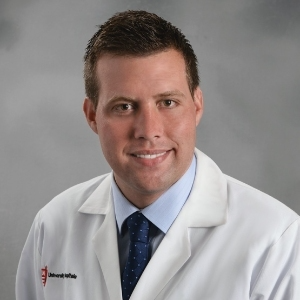Sessions
Precision Cardiology & Genomic Insights
Precision Cardiology & Genomic Insights explores how genetic profiling, molecular diagnostics, and personalized risk prediction tools are reshaping cardiovascular care. This content focuses on identifying inherited cardiac conditions, using genomic biomarkers, and applying polygenic risk scores to detect susceptibility to heart disease at earlier stages. It highlights how precision therapeutics, including gene-targeted therapies and individualized drug responses, are transforming treatment outcomes. The section also examines emerging applications of pharmacogenomics in selecting optimal medications, minimizing adverse reactions, and improving long-term cardiac health. With advancements in multi-omics technologies, clinicians are now able to integrate genomic, proteomic, and metabolomic data to better understand disease mechanisms and tailor interventions for each patient. It emphasizes the growing role of genetic counseling, family-based screening, and predictive modeling in preventing complications. Ultimately, this session underscores how precision cardiology enhances diagnostic accuracy, strengthens preventive strategies, and sets the foundation for a more personalized and effective approach to managing cardiovascular diseases.
AI-Powered Cardiac Diagnostics
AI-Powered Cardiac Diagnostics highlights the transformative impact of artificial intelligence in improving the accuracy, speed, and efficiency of cardiovascular assessment. This content explores how machine learning algorithms analyze ECGs, imaging scans, wearable device data, and clinical indicators to detect abnormalities that may be missed through traditional evaluation. It emphasizes the benefits of early detection, automated diagnostic support, and predictive analytics for identifying high-risk patients before symptoms escalate. AI-driven models enhance decision-making by offering instant interpretation of complex datasets, enabling clinicians to focus on personalized treatment planning. The section also addresses how advanced computational tools are being integrated into echocardiography, CT angiography, and MR imaging to improve visualization and reduce diagnostic errors. Additionally, the use of natural language processing in electronic health records is improving workflow efficiency and patient management. Overall, it demonstrates how AI technology is advancing precision diagnostics, optimizing clinical outcomes, and shaping the future of cardiovascular medicine.
Advanced Heart Failure Management
Advanced Heart Failure Management focuses on cutting-edge strategies designed to improve survival, reduce hospitalizations, and enhance quality of life for patients experiencing progressive cardiac dysfunction. This content highlights advances in pharmacological therapies, including SGLT2 inhibitors, ARNI treatments, and novel cardioprotective agents that improve heart function and reduce disease progression. It examines the role of device-based interventions such as ventricular assist devices, cardiac resynchronization therapy, and implantable monitoring systems in managing complex cases. Emerging innovations in remote monitoring allow continuous evaluation of fluid status, arrhythmia risk, and overall cardiac performance. The section also explores the integration of multidisciplinary heart failure programs that combine lifestyle modification, patient education, and personalized treatment planning. Gene-targeted therapies and regenerative approaches are offering new pathways for repairing damaged myocardium. Ultimately, this session highlights the importance of early diagnosis, comprehensive care models, and technological advancements that are shaping a more effective and patient-centered approach to heart failure management.
Interventional Cardiology Innovations
Interventional Cardiology Innovations highlights breakthroughs in minimally invasive procedures designed to diagnose and treat complex cardiovascular conditions with greater precision and reduced recovery times. This content focuses on advancements in angioplasty, stent technologies, and catheter-based therapies that enhance safety and improve clinical outcomes. It emphasizes the development of bioresorbable stents, drug-eluting systems, and advanced guidewire tools that allow more refined treatment of coronary artery disease. Structural heart interventions, including transcatheter aortic valve replacement and mitral repair, have revolutionized options for high-risk patients. The section also addresses robotic-assisted procedures and intravascular imaging techniques that offer real-time visualization for optimal treatment planning. Laser atherectomy, thrombectomy systems, and pressure-wire assessments are expanding capabilities in complex lesion management. Additionally, data-driven procedural planning and AI-enhanced imaging are improving precision and reducing complications. Overall, this session underscores how innovative interventional approaches are redefining cardiovascular treatment through enhanced efficiency, minimally invasive methods, and superior patient outcomes.
Next-Generation Cardiac Imaging
Next-Generation Cardiac Imaging focuses on advanced technologies that provide highly detailed visualization of cardiac structures, blood flow patterns, and disease progression. This content highlights innovations in cardiac MRI, CT angiography, 3D echocardiography, and nuclear imaging techniques that enhance diagnostic accuracy and support early intervention. It examines the integration of artificial intelligence to automate image interpretation, improve resolution, and reduce diagnostic variability. Novel imaging biomarkers and functional imaging methods allow clinicians to detect subtle tissue changes, myocardial fibrosis, inflammation, and ischemia with greater precision. Photon-counting CT, contrast-enhanced modalities, and molecular imaging are expanding the detection capabilities for coronary disease, heart failure, arrhythmias, and congenital abnormalities. The section also addresses the role of imaging in guiding minimally invasive interventions, treatment planning, and postoperative evaluation. With improved speed, clarity, and diagnostic depth, next-generation imaging contributes to personalized care and ensures more accurate assessment of cardiovascular conditions.
Electrophysiology & Arrhythmia Solutions
Electrophysiology & Arrhythmia Solutions examines the latest advancements in diagnosing and treating disturbances in cardiac rhythm. This content highlights innovations in catheter ablation, 3D electroanatomic mapping, and wearable rhythm monitoring devices that support precise detection and long-term management of arrhythmias. It explores progress in treating atrial fibrillation, ventricular tachycardia, supraventricular tachycardia, and conduction disorders through targeted therapies and new ablation technologies. The development of cryoablation, pulsed-field ablation, and improved mapping systems has significantly enhanced procedural safety and effectiveness. Advanced pacemakers, defibrillators, and leadless cardiac devices offer minimally invasive solutions with extended battery life and improved patient comfort. AI-enhanced analytics are helping identify early warning signs, classify rhythm disturbances, and guide optimal therapy selection. Electrophysiology is increasingly integrated with imaging tools to ensure better navigation and reduced complications during procedures. The session underscores the importance of advanced diagnostic capabilities, innovative treatment options, and personalized rhythm management approaches that improve long-term patient outcomes.
Valve Repair & Structural Heart Therapies
Valve Repair & Structural Heart Therapies explores transformative advancements in treating valvular and structural cardiac disorders through minimally invasive and catheter-based approaches. This content focuses on transcatheter technologies that offer safer alternatives for patients who are not ideal candidates for traditional open-heart surgery. It highlights innovations such as TAVR, TMVR, tricuspid repair systems, and left atrial appendage closure devices that reduce procedural risks and shorten recovery periods. Enhanced imaging guidance and precision navigation tools enable greater accuracy during valve deployment and repair procedures. The section also examines advancements in prosthetic valve durability, biocompatible materials, and customizable device designs tailored to individual anatomy. Computational modeling and AI-assisted planning are becoming essential in predicting outcomes and optimizing therapeutic decisions. Structural interventions now extend to congenital defects, septal abnormalities, and complex vascular conditions, offering broader treatment options. Overall, this session emphasizes how evolving structural heart therapies are improving patient safety, treatment accessibility, and long-term cardiac performance.
Cardiovascular Regenerative Medicine
Cardiovascular Regenerative Medicine highlights pioneering research focused on repairing damaged heart tissue and restoring cardiac function using advanced biological therapies. This content explores stem cell-based treatments, tissue engineering, and gene-editing technologies designed to reverse myocardial injury and improve recovery after heart failure or ischemic events. It discusses the potential of induced pluripotent stem cells, cardiac progenitor cells, and biomaterial scaffolds in promoting tissue regeneration. The integration of growth factors, exosomes, and extracellular vesicles is offering new pathways for cellular repair and inflammation reduction. Cutting-edge studies in CRISPR gene editing and molecular engineering are expanding opportunities to modify disease pathways and enhance therapeutic outcomes. The section also examines challenges related to cell delivery methods, immune response, and long-term safety. Regenerative medicine aims to shift cardiology from traditional management toward actual restoration of cardiac function. Ultimately, this session highlights transformative possibilities that may redefine the future of cardiovascular treatment through biological innovation and restorative science.
Preventive Cardiology & Risk Reduction
Preventive Cardiology & Risk Reduction emphasizes strategies that aim to identify, manage, and reduce cardiovascular risk before serious disease develops. This content highlights evidence-based approaches that integrate screening programs, lifestyle interventions, and personalized risk assessments to prevent heart disease across diverse populations. It explores the impact of nutrition, physical activity, weight management, and stress reduction in improving overall heart health. Technological advancements, including digital health tools and predictive analytics, play a growing role in detecting early warning signs and guiding preventive care. The section also discusses the importance of lipid management, hypertension control, diabetes prevention, and smoking cessation in minimizing risk factors. Community-based programs, public health initiatives, and workplace wellness strategies are crucial for broad-scale prevention efforts. Preventive cardiology underscores the value of patient education, early intervention, and proactive health management to reduce complications. By focusing on prevention, healthcare systems can decrease hospitalizations, improve outcomes, and support healthier long-term cardiovascular wellness.
Digital Health & Remote Cardiac Monitoring
Digital Health & Remote Cardiac Monitoring explores how technology-driven solutions are transforming cardiovascular care delivery through continuous data tracking, smart devices, and virtual health platforms. This content highlights innovations in wearable sensors, mobile health applications, connected implants, and AI-powered monitoring tools that allow clinicians to observe cardiac activity in real time. Remote monitoring improves early detection of arrhythmias, fluid retention, ischemia, and other warning signs, enabling timely interventions and reduced hospital visits. The integration of telehealth consultations, cloud-based health records, and automated alerts supports seamless communication between patients and providers. The section also examines the role of digital platforms in patient engagement, medication adherence, and personalized care plans. Emerging technologies, including smart patches, home-based diagnostics, and predictive analytics, are enhancing clinical decision-making and creating more efficient care pathways. Overall, this session demonstrates how digital health ecosystems are strengthening accessibility, optimizing treatment outcomes, and shaping the future of patient-centered cardiac care.
Hypertension & Vascular Health Advances
Hypertension & Vascular Health Advances focuses on innovative strategies for diagnosing, monitoring, and treating elevated blood pressure and associated vascular disorders. This content highlights emerging therapies, advanced drug regimens, and technology-assisted monitoring systems designed to improve long-term control and reduce complications. It discusses the role of genetic predisposition, lifestyle factors, and metabolic influences in hypertension development. Wearable blood pressure sensors, home-based monitoring devices, and AI-enhanced analytics provide more accurate and continuous assessment of vascular health. New pharmacological options, including combination therapies and organ-protective agents, are improving outcomes for resistant hypertension. The section also addresses advances in vascular imaging, endothelial function testing, and minimally invasive interventions for serious vascular diseases. Public health initiatives and preventive strategies remain essential for reducing the global burden of hypertension. Overall, this session demonstrates how early detection, innovative therapies, and modern monitoring technologies contribute to improved vascular health and reduced cardiovascular risk.
Pediatric & Congenital Heart Care
Pediatric & Congenital Heart Care highlights advancements in diagnosing and treating cardiac conditions affecting infants, children, and adolescents. This content focuses on innovations in fetal cardiology, early detection technologies, and minimally invasive surgical techniques that improve outcomes for congenital heart defects. Advances in imaging, including 3D echocardiography and cardiac MRI, support accurate assessment and individualized treatment planning. The section also explores gene-based insights that enhance understanding of congenital disorders and guide preventive strategies. Pediatric interventional cardiology continues to evolve with catheter-based therapies that reduce the need for open surgery. Long-term care approaches address growth, development, and transition into adult cardiology. Multidisciplinary collaboration among pediatric cardiologists, surgeons, and genetic specialists plays a critical role in comprehensive care. Emerging research in regenerative therapies holds promise for repairing heart structures at early stages of life. This session emphasizes compassionate, advanced, and family-centered approaches to improving lifelong cardiovascular health in children.
Cardio-Metabolic Disease Management
Cardio-Metabolic Disease Management examines the interconnected nature of metabolic disorders—including diabetes, obesity, and dyslipidemia—and their significant impact on cardiovascular health. This content highlights advanced diagnostics, personalized treatment plans, and innovative therapies designed to manage complex metabolic profiles. Pharmacological advancements, such as SGLT2 inhibitors and GLP-1 receptor agonists, play a key role in reducing cardiovascular risk. The section also explores lifestyle interventions, nutritional strategies, and behavioral modifications that improve metabolic balance. Integrated care models combining endocrinology and cardiology are essential for effective management of high-risk patients. Predictive analytics and biomarker-driven approaches enhance early identification of cardio-metabolic complications. Emerging research on inflammation, insulin resistance, and hormonal influences provides deeper understanding of disease mechanisms. Overall, this session underscores how comprehensive management strategies, improved diagnostics, and innovative therapies are essential for reducing cardiovascular complications associated with metabolic disorders.
Acute Coronary Syndromes & Emergency Care
Acute Coronary Syndromes & Emergency Care focuses on rapid response strategies, diagnostic advancements, and therapeutic innovations essential for managing life-threatening cardiac emergencies. This content highlights the importance of early symptom recognition, accelerated triage processes, and fast diagnostic pathways to reduce mortality and improve recovery. The integration of high-sensitivity troponin testing, rapid imaging techniques, and decision-support tools enhances early detection of myocardial infarction. Advances in reperfusion therapy, including primary percutaneous coronary intervention and optimized antithrombotic treatments, contribute to better patient outcomes. The section also examines pre-hospital care innovations such as mobile ECG transmission, telemedicine support, and emergency response coordination. Simulation-based training improves clinical readiness for acute scenarios. Post-event management includes secondary prevention, medication optimization, and lifestyle guidance. This session emphasizes the critical role of efficiency, teamwork, and technology in delivering timely and effective emergency cardiac care.
Cardiac Rehabilitation & Lifestyle Optimization
Cardiac Rehabilitation & Lifestyle Optimization highlights comprehensive recovery strategies designed to support long-term cardiovascular wellness following cardiac events or interventions. This content emphasizes evidence-based exercise programs, personalized rehabilitation plans, and gradual physical conditioning tailored to patient needs. Nutritional counseling, stress management techniques, and behavioral therapy play vital roles in achieving sustained improvement. Digital tools and remote monitoring platforms enhance patient engagement, track progress, and support adherence to lifestyle recommendations. The section also examines psychological support, which is essential for addressing anxiety, depression, and emotional challenges associated with heart disease. Multidisciplinary rehabilitation teams, including physiotherapists, nutrition specialists, and cardiologists, help patients regain strength and reduce the risk of future events. Education on risk factor modification—such as smoking cessation and weight management—promotes lifelong health benefits. Overall, this session underscores the transformative value of structured rehabilitation programs and lifestyle optimization in improving outcomes, enhancing quality of life, and preventing recurrent cardiac issues.






